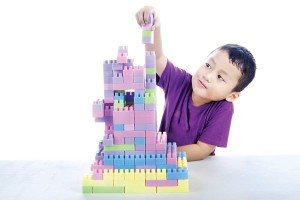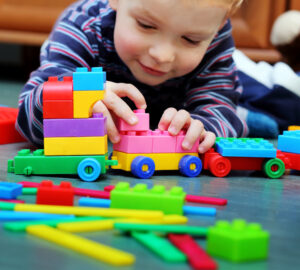One skill essential to children’s academic success is the ability to learn on their own. While teachers and parents play a key role in a child’s development, educational activities that encourage self-learning are equally important. Learning independently inspires children to become more confident, and nurtures critical thinking and analytical skills. Giving children time to learn on their own allows them to tap in to their natural curiosity and to explore in a way that more structured learning activities do not.
 At its core, self-learning gives students the power to explore new concepts on their own, at their own pace. In a traditional classroom setting, activities move along at a pace that usually caters to the class as a whole, rather than to each individual student. Self-learning exercises allow students to think critically and move on to more difficult exercises at their own speed. In Kumon, students are given short incremental assignments that help them carry knowledge gained from previous lessons on to the next one. The ultimate goal is for students to progressively build the knowledge and learning skills that will allow them to study above their grade level. Students can then develop a more thorough understanding of a concept, while also gaining confidence in their problem-solving abilities.
At its core, self-learning gives students the power to explore new concepts on their own, at their own pace. In a traditional classroom setting, activities move along at a pace that usually caters to the class as a whole, rather than to each individual student. Self-learning exercises allow students to think critically and move on to more difficult exercises at their own speed. In Kumon, students are given short incremental assignments that help them carry knowledge gained from previous lessons on to the next one. The ultimate goal is for students to progressively build the knowledge and learning skills that will allow them to study above their grade level. Students can then develop a more thorough understanding of a concept, while also gaining confidence in their problem-solving abilities.
Self-learning isn’t only tied to academic activities; children of any age are learning through life experiences every day. By promoting problem solving through play activities, you can promote your child’s self-learning ability. Any activity that taps in to your child’s ability to solve problems can promote independent learning. When buying toys or games, consider those that have a problem-solving element and offer fun challenges to build your child’s sense of accomplishment. Solo craft projects and building projects are also great for supporting your child’s need for creative thought and exploration.



